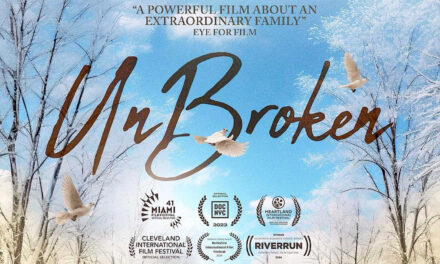Hindu Council of Australia national president Sai Paravastu and Hindu leaders have come out in support of Jewish Australians
 Hindu Council of Australia national president Sai Paravastu. Hindu leaders have come out in support of Jewish Australians. Picture: John Feder
Hindu Council of Australia national president Sai Paravastu. Hindu leaders have come out in support of Jewish Australians. Picture: John Feder
One of the Australia’s top Hindu leaders has warned the nation is “incubating religious intolerance” with its failure to clamp down on anti-Semitism, claiming those who hate Jewish Australians “hate people of all faiths except their own”.
It comes as Hindu leaders strengthened bonds with Jewish Australians amid 2024’s rampant anti-Semitism and that community’s “453 days of nightmares”, which came to a head in November and December with attacks in Sydney and Melbourne, only months before a federal election set to be dominated by the Israel-Hamas conflict’s domestic reverberations.
The Hindu community has been one of the strongest supporters of Australian Jews – NSW Jewish Board of Deputies president David Ossip said there had been “no better friend” – and Hindu Council of Australia vice-president Surinder Jain said it was “heartbreaking” that threats toward that community were coming from “within Australia itself”. “The past 453 days have been a nightmare for Jewish Australians,” he said. “A constant barrage of threats, vandalism and hate speech has created a climate of fear … chants of hate and slogans calling for the eradication of Israel have become all too common.” But Mr Jain said anti-Semitism was a “symptom” of a broader disease plaguing the nation – namely, “religious intolerance”, which had incubated in Australia after a year of rising hatred. “Those who hate Jews also hate people of other faiths except their own,” he said.
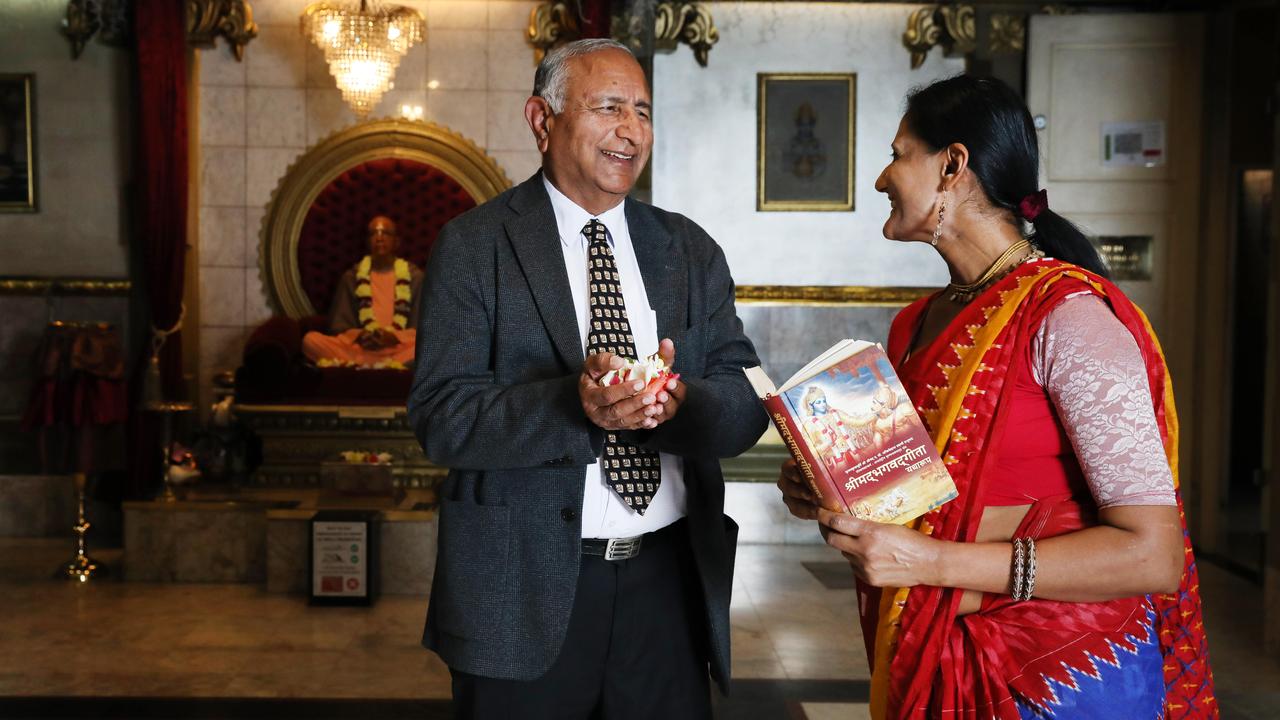
Hindu Council of Australia national vice-president Surinder Jain with senior devotee Jaya Radhika Devi Dasi. Picture: Jane Dempster
“This is not just a problem for Jews, but for people of all faiths and for Australia. We must take firm action to stamp out anti-Semitism, just as we would any other form of hatred.”
After Melbourne’s Adass Israel Synagogue was firebombed in a possible terrorist attack, the Hindu Council wrote to Anthony Albanese demanding his government more strongly act.
“The time for (talk) has passed,” its president, Sai Paravastu, wrote to the Prime Minister. “We need strong and decisive leadership to protect the rights and safety of all Australians.”
The letter, which was also sent to Peter Dutton and Victorian Premier Jacinta Allan, said recent anti-Semitic attacks were “not isolated” but a “disturbing escalation” in crimes targeting Australia’s multicultural communities.
The firebombing was followed by another anti-Semitic vandalism attack in Woollahra, a notable Jewish suburb in Sydney, and the painting of Islamophobic graffiti in the city’s southwest and an alleged attack targeting a prominent sheik.
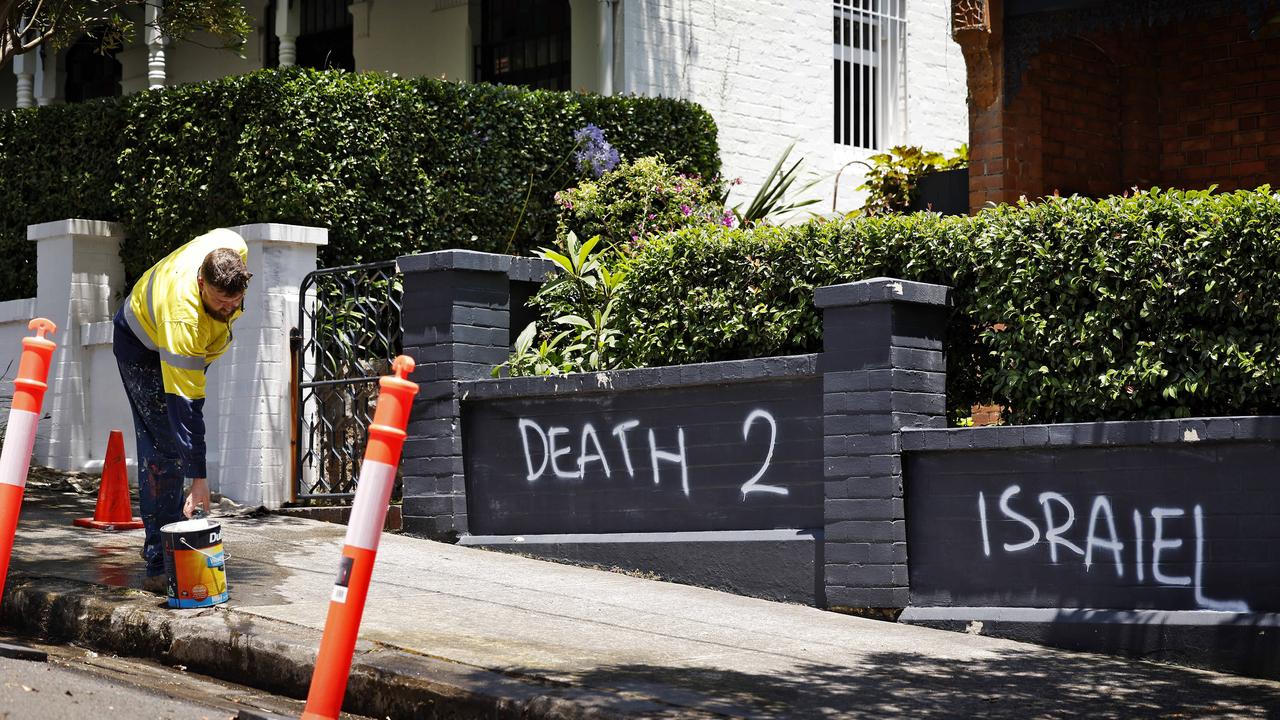
Anti-Semitic vandalism in December in Woollahra, a notable Jewish suburb in Sydney. Picture: Sam Ruttyn
“(The attacks are a) wake-up call that demands tougher government action and a zero-tolerance approach to violent extremism,” Mr Paravastu said.
A spokeswoman for Mr Albanese said the Prime Minister had been “clear” that every Australian had a “right to be proud of who they are, and to feel welcome and safe in Australia”.
“Anti-Semitism has no place in Australia and we unequivocally condemn it,” she said.
This week, a spokeswoman for Foreign Minister Penny Wong said “nothing was more important for our future” than cementing Australia as a “pluralist nation”, welcoming different races and religions, and “respecting each other’s right to live in peace”.
It follows Mr Albanese’s emotional address at the Sydney Jewish Museum where he decried another targeting of the community and the fact Australian Jews felt unsafe in their country.
Mr Ossip is on the NSW government’s Faith Affairs Council alongside Mr Jain – the pair worked together to overturn Uber’s ban on Sydney mother Swastika Chandra – and applauded the Hindu Council’s and wider Indian-Australian community’s mateship.
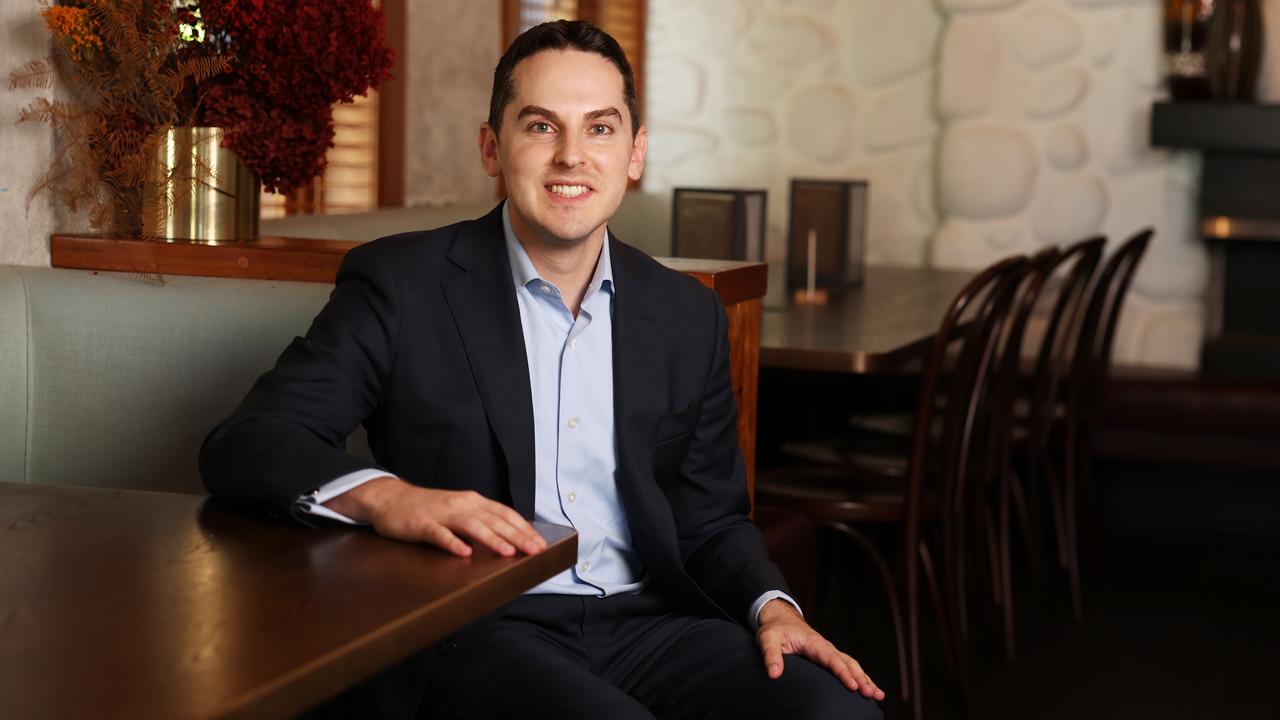
NSW Jewish Board of Deputies president David Ossip. Picture: Rohan Kelly
“The steadfast, unflinching support we’ve received (from the Hindu community) during the past 15 months has been remarkable and deeply appreciated,” he said, noting the “extraordinary contribution” that Indian-Australians had made to the country.
“It is a long-term relationship built on shared values, a common worldview and a joint commitment to doing all we can to contribute to our society.”
Anger in the Jewish community at the government’s handling of anti-Semitism came to a head in December, when Mr Ossip stood alongside NSW Premier Chris Minns after another anti-Semitic vandalism attack.
He could not, however, bring himself to stand alongside Mr Albanese a few hours later at the Sydney Jewish Museum, citing the Foreign Minister’s “policy moves against Israel”, and her alleged “incendiary, demonising and provocative rhetoric”.
Faith NSW chief executive Murray Norman, whose organisation represents a coalition of faiths and is helping the council establish a Sydney Hindu school, said every Australian had a “duty to step up” in 2025.
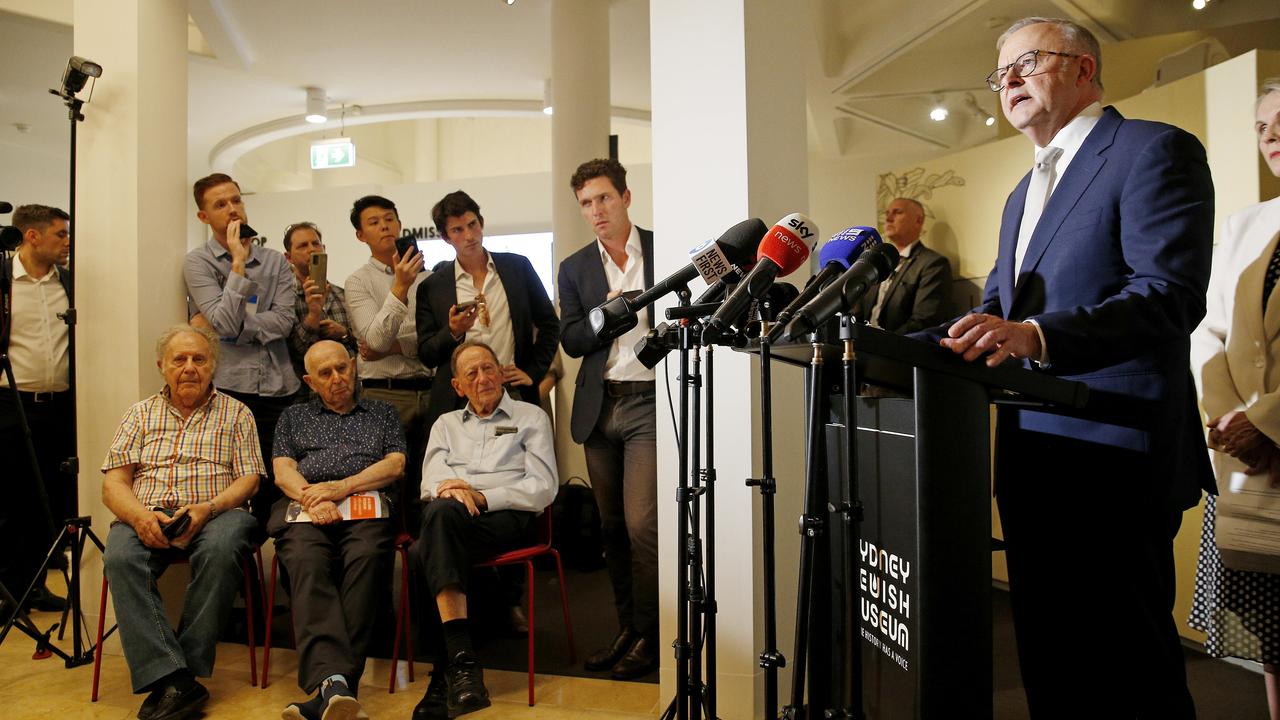
Holocaust survivors, pictured sitting in the front row, watch as Anthony Albanese speaks at the Sydney Jewish Museum in December. Picture: John Appleyard
“We can’t solve what’s happening overseas, but what we can do is step up (in Australia) and say ‘that’s not right’,” he said.
“The Jewish community feels under the threat, the Muslim community hurts after seeing what’s happening in Gaza.”
Mr Norman said that he believed neither overseas conflicts nor Australia’s societal conditions would “get any simpler” and it was therefore vital that Australians looked after each other.
“Every chance we get we should be thinking ‘what can I do to help someone else’,” he said.
“That’s what it means to be an Australian.”
Next year’s federal poll is likely to have a foreign policy hue, with the government copping flack from both the Jewish and Muslim communities for the tightrope it has attempted to walk.
The government has sought to balance strongly combating anti-Semitism domestically – strengthening or enacting legislation, like new anti-doxxing laws – with votes to recognise Palestinian statehood and a two-state solution at the UN.
It has, however, alienated both the Jewish and Muslim communities, neither of whom believe the government has been strong enough in the respective areas affecting their members.
In October, Mr Jain said his community had “lost faith” with the “divisive” Greens, saying the council encouraged its members to preference the party last.
Link to article source.






